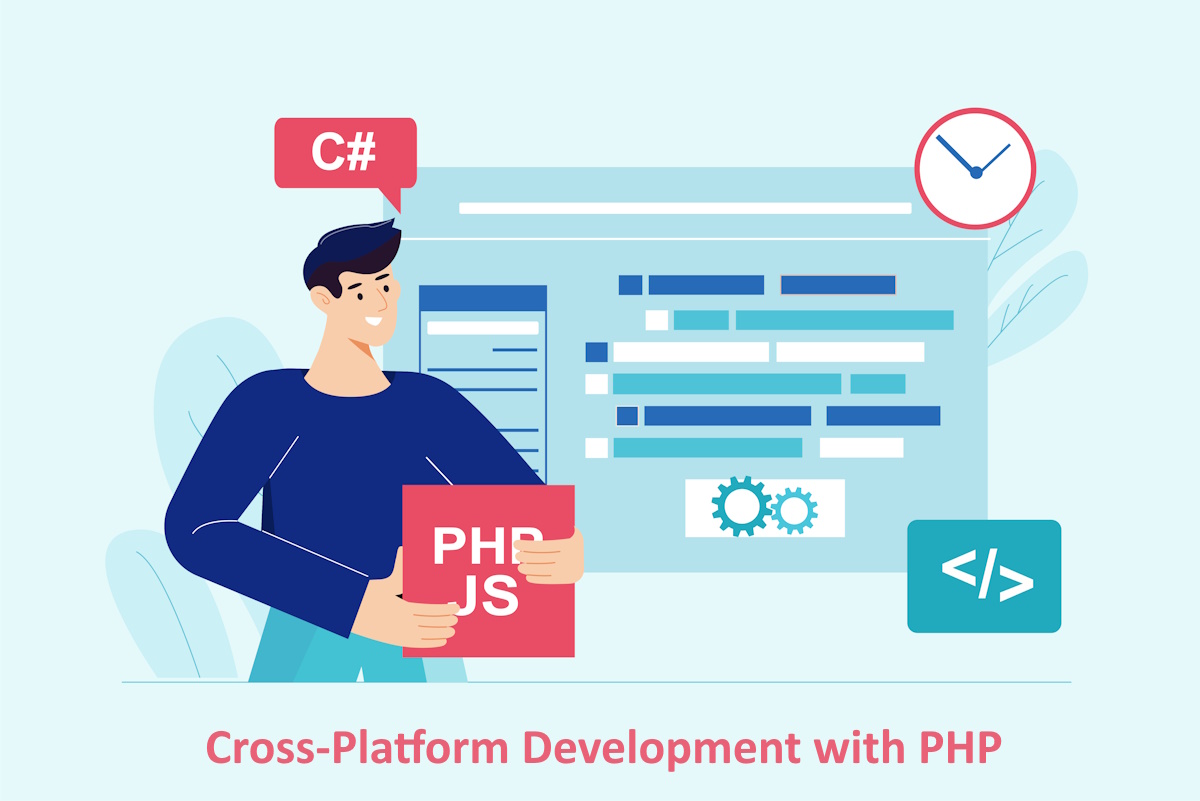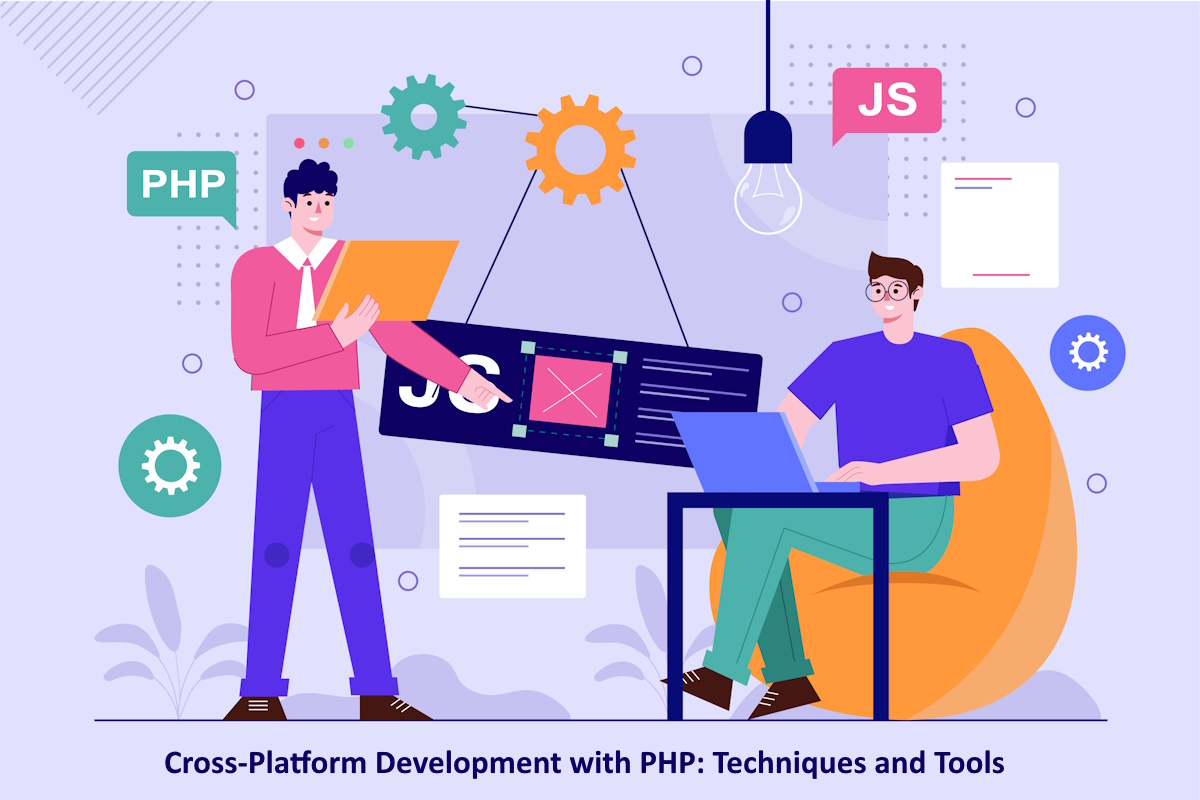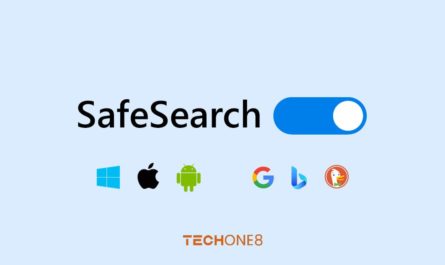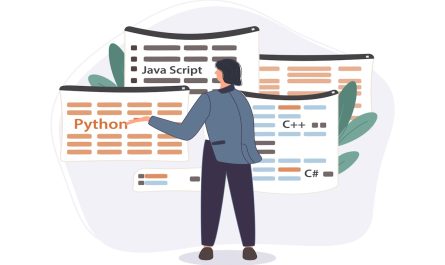In the burgeoning field of software development, the agility to adapt and the capability to efficiently deploy applications across various platforms are invaluable. With PHP’s widespread popularity and its evolving ecosystem, PHP rapid application development has emerged as a pivotal strategy for tech companies aiming to streamline their development process and enhance productivity.
This blog post elucidates the key techniques and tools inherent in cross-platform development with PHP, underscoring its significance for technology professionals and organizations keen on leveraging PHP’s robust framework for rapid application development.

Contents
Understanding PHP in Cross-Platform Development
PHP, or Hypertext Preprocessor, is a server-side scripting language primarily used for web development. Advanced PHP frameworks have expanded its use to cross-platform software solutions beyond web applications. PHP’s adaptability stems from its open-source nature, strong community support, and rich library of frameworks for versatile application development.
Key Techniques for PHP Rapid Application Development
1. Framework Utilization
The adoption of PHP frameworks like Laravel, Symfony, and Zend significantly accelerates the development process. These frameworks offer pre-built modules, security features, and ORM support, streamlining cross-platform application development.
2. Microservices Architecture
Employing a microservices architecture enables the development of highly scalable and flexible applications. PHP rapid application development benefits from microservices by allowing teams to deploy and manage individual components independently across platforms.
3. RESTful APIs
Creating RESTful APIs with PHP enhances the interoperability of applications. It facilitates communication and data exchange between different software components and platforms, ensuring a coherent ecosystem for cross-platform development.
4. Automated Testing
Implementing automated testing strategies is paramount for maintaining high-quality standards in PHP development. Tools like PHPUnit facilitate automated testing, allowing developers to quickly identify and rectify issues, ensuring robustness and reliability of cross-platform applications.
Continuous Integration and Continuous Deployment (CI/CD)
Adopting CI/CD pipelines in PHP development projects accelerates the delivery of applications by automating the stages of code integration, testing, and deployment. This approach minimizes manual errors, enhances productivity, and ensures that applications are consistently in a deployable state.
Use of Composer for Dependency Management
Leveraging Composer, PHP’s package manager, greatly simplifies dependency management. It automates the installation and updating of libraries and frameworks, enhancing project maintainability and reducing development time.
Containerization with Docker
Utilizing Docker for containerization in PHP projects promotes development efficiency and operational simplicity. Containers encapsulate the application environment, making it easier to develop, test, and deploy PHP applications consistently across different platforms and cloud environments.
Essential Tools for PHP Rapid Application Development
1. Composer
A dependency management tool for PHP that simplifies the management of project libraries and packages, making it indispensable for modern PHP development projects.
2. PHPUnit
A unit testing framework that ensures code reliability and reduces bugs, thereby maintaining the integrity of cross-platform applications developed with PHP.
3. Docker
Containerization with Docker offers a consistent environment for developing, testing, and deploying applications, mitigating platform-specific discrepancies.
4. Xdebug
A powerful debugger for PHP applications, Xdebug enhances the development process by providing valuable insights into code behavior and performance. This tool is crucial for identifying and resolving bugs efficiently, ensuring the delivery of high-quality software solutions.
5. Laravel Homestead
A pre-packaged Vagrant box offers a solid development environment, eliminating the need for manual PHP installation, a web server, and other server software components. Its seamless integration with the Laravel framework makes it an essential tool for developers seeking to streamline their workflow and enhance productivity.
The Strategic Advantage of PHP Rapid Application Development
The agility afforded by PHP rapid application development fosters innovation and competitiveness. It empowers tech companies to rapidly prototype, test, and deploy applications, meeting market demands with precision. The modularity, scalability, and cross-platform compatibility achieved through PHP frameworks and tools enhance operational efficiency, reducing development time and costs.
1. Speed to Market
PHP frameworks enable rapid development cycles, significantly reducing the time from conceptualization to product launch. This agility allows businesses to respond to changing market dynamics effectively.
2. Cost Efficiency
Reduced development time directly translates into cost savings. PHP’s open-source nature further minimizes expenses, making it a budget-friendly choice for startups and established companies alike.
3. Scalability
PHP and its frameworks are designed with scalability in mind, allowing applications to grow seamlessly as user base or data volume increases. This ensures long-term viability and performance stability.
4. Ease of Maintenance
The modular architecture of PHP applications facilitates easier updates and maintenance. This modular approach not only simplifies codebase management but also enhances the adaptability of the applications to evolving business needs.
5. Cross-Platform Compatibility
PHP’s inherent cross-platform capabilities ensure applications run smoothly across various operating systems and environments, broadening the potential user base and improving accessibility.
6. Community Support and Resources
A vibrant and active PHP community contributes to a vast repository of resources, libraries, and frameworks. The availability of extensive documentation, forums, and tutorials aids developers in constantly honing their skills and troubleshooting effectively.
7. Security
With advanced security testing features and regular updates, PHP frameworks provide a solid foundation to safeguard applications against potential threats, ensuring the protection of sensitive data and bolstering user trust.
Conclusion
PHP rapid application development offers a comprehensive suite of benefits for cross-platform development endeavors, making it an essential strategy for tech companies aiming for scalability, efficiency, and responsiveness in their software solutions. By leveraging the techniques and tools discussed, organizations can capitalize on PHP’s robust capabilities to drive innovation and achieve competitive advantage.
For companies looking to excel in software development and IT outsourcing, adopting PHP for rapid application development is a strategic step forward. Consult with experts who specialize in PHP development to explore how your organization can harness the power of PHP for cross-platform development success.
Discover how PHP rapid application development can transform your software development strategy. Contact us today for a consultation and elevate your development process to new heights.
Author Bio:
Arjun Solanki is a Business Growth Strategist at a Leading Software Development Company. He has experience in developing and executing digital strategies for large global brands in a variety of business verticals. Apart from working on a long-lasting relationship with customers and boost business revenue, he is also interested in sharing my knowledge on various technologies and its influence on businesses through effective blog posts and article writing.




